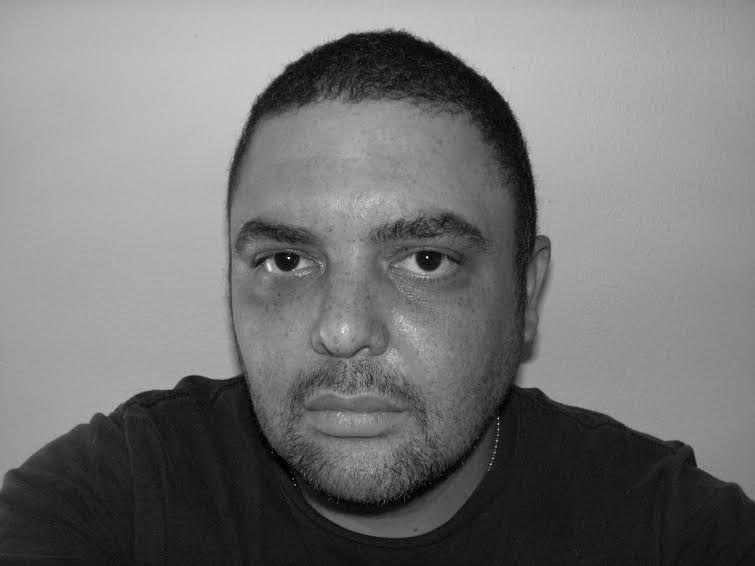Shane McCrae Debuts Vulnerable Poetry Collection
Assistant Professor of Creative Writing Shane McCrae is the department’s newest addition. McCrae gave a reading of poems from his latest collection, Forgiveness Forgiveness, to a rapturous audience of students on Wednesday in the Hallock Auditorium.
September 12, 2014
In a charming office of the iconic Yellow House on Tuesday morning, Shane McCrae, Oberlin’s newest assistant professor of Creative Writing, asks if it would be all right if he ate string cheese during his interview. An unconventional breakfast, perhaps, but one expects nothing less from an addition to one of the quirkiest departments on campus. His public introduction was no less engrossing: McCrae read selections from his most recent compilation of beautifully violent poetry, Forgiveness Forgiveness, in Hallock Auditorium on Wednesday, Sept. 10. The reading featured provocative poems pertaining to McCrae’s childhood with content centering on his experience of growing up in a household with two racist grandparents who had suppressed the fact that McCrae’s no longer present father had been black.
When asked where he is from, McCrae gives an in-depth history of the many places he considers himself to “be from.” Despite having been born in Portland, OR, McCrae’s years spent roaming the United States define much of his complex persona and have contributed to the unique brand of poetry that he now brings to Oberlin. Spending most of his childhood in Texas, he attended a wide array of educational institutions, including, but not limited to, Chemeketa Community College, Linfield University, the University of Iowa and Harvard Law School. The poet had an initially inauspicious educational experience, which is perhaps why, despite his apparent intellectual impressiveness and hauntingly stunning poetry, he remains so humble.
“I failed every class from the sixth grade up,” McCrae says unabashedly. Yet he remembers the exact date of when he first fell in love with poetry. On Oct. 25, 1990, during an after-school special that featured Sylvia Plath’s famous poem “Lady Lazarus,” McCrae, a self-described “gothy teenager,” fell in love with the classic line: “Dying / Is an art, like everything else. / I do it exceptionally well.” From that moment, McCrae started writing. He was inspired exclusively by work written by Plath, Linda Paston and Celestine Frost when he first began his career. He says that there is a musical aspect to his poetry, and revealed an anxiety about falling away from his usual musical focus and instead becoming more content-driven.
Despite his fears about his stylistic shift, however, McCrae’s latest poems, which he describes as “upsetting,” are satisfyingly powerful, as they combine musical and rhythmic precision and raise relevant social questions about race.
Forgiveness Forgiveness features two sections, each titled “The Visible Boy,” and the book is described by McCrae as an “Emmett Till sort of thing.” “The Visible Boy” tells the story of a character named Little Brown Koko, whom McCrae remembers from a racist children’s book among photo albums on his grandfather’s bookshelf. In an excerpt offered by McCrae, Little Brown Koko runs away from his abusive mother. McCrae comments with a piercingly resonant line: “It’s easy to find God when something is being taken from you. Little Brown Koko finds God everywhere.” When asked if he considers writing poetry to be equivalent to his meditation, he responds with a decisive “no.” McCrae describes his poetry as “pretty businesslike.” His writing process gets mean; due to the vulnerability required for his poetry, which is confessional in nature, he has struggled less with achieving a place of vulnerability than with his lack of a personal life. McCrae initially wanted to work for an MFA program, but decided to teach undergraduates because his own undergraduate experience was more significant than his graduate experience. “Graduate level [teaching] is much more about facilitating,” he says. McCrae applied to Oberlin on a whim, and was shocked when he became a semi-finalist for the teaching position, which required a Skype interview. He was again surprised when he was invited to Oberlin as a finalist, and when he was offered the position he was “even more shocked.”
Struck by the level of student engagement, McCrae enjoys being surrounded by an abundance of writers on a campus so rich with history. Does he enjoy working at Oberlin? “I love it,” he says. “It’s not a very complicated answer.
















